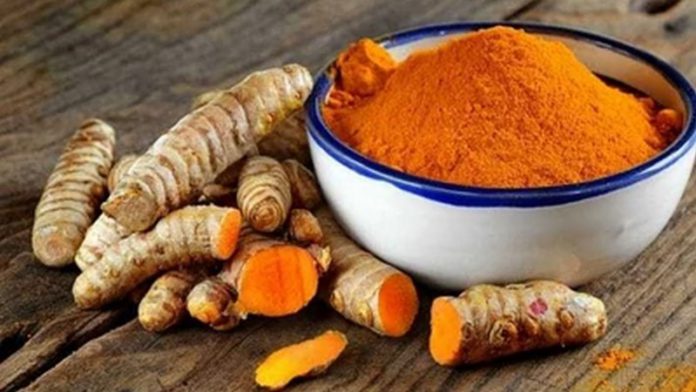Researchers at the Kwame Nkrumah University of Science and Technology has found the presence of chalk and Metanil yellow, an unapproved food colorant, in powdered Turmeric products sold on the markets in Greater Accra.
The recent study by the Biochemistry and Biotechnology Department detected food adulterants in all samples sourced from ten markets in the metropolis.
The long-term adverse effects of the chemicals pose deleterious health risks to humans including cancer of the liver, cardiovascular disorders, peptic ulcers and kidney diseases.
Turmeric powder is a common local spice, food preservative and colourant used in many Ghanaian households for various culinary and medicinal purposes.
It has gained attention for its plethora of benefits including a remedy for diabetic wounds, hepatic disorders, rheumatism, cough amongst others.
Curcumin, the major active component of turmeric, gives the root plant its prominent yellowish colouration, nutritional and medicinal benefits.
But the zest to increase the quantity and colouration of the powdered product has seen vendors adulterate the local spice.

Associate Professor of Biochemistry, Prof. Christopher Larbie, led the team of scientists to uncover the trend on the local markets in Accra including Agbogboloshie, Malata and others.
“What we gathered was that they add the chalk to increase the quantity of the turmeric and also enhance the yellow colouration of the vegetable,” he said.
The study published in the European Journal of Nutrition & Food Safety sampled twenty turmeric powder products from ten market centres in the Accra metropolis.
All the samples taken from the market were found to be adulterated with metanil yellow – an azo dye – while two contained chalks.
Freshly acquired Turmeric powders are usually rich in Vitamins B complexes and C which aid in metabolism especially in Carbohydrate digestion.
The study found significantly decreasing levels of these nutrients and the pure compound, Curcumin (about 72% reduction) in the collected samples.
“The Vitamins B1 and B2 had decreased about 90% and 92% respectively. Vitamin C was zero. When you buy such products, you are not getting the actual nutrients you need for diseases prevention and healing,” he said.
The scientists attribute the vitamins reductions to their long exposure to the open air which alters their chemical nature as they are heat-labile or sensitive.
Although the study couldn’t conclude on the quantity of the contaminants in the samples, the researchers explain their detection should be a concern for public education.
The human body is highly sensitive to food adulteration with accompanying side effects including diarrhoea, dysentery and vomiting.
The complications of the long-term adverse effects of adulterated foods are associated with diseased conditions which may include cancer of the liver, cardiovascular disorders, peptic ulcers, kidney related problems, etc.
“Metanil yellow is toxic on the liver, brain, and reproductive systems. It has negative effects on some of the brain hormones. Metanil yellow hasn’t been approved as a food colour in Ghana,” Prof. Larbie said.
While the scientists advise regular and periodic food surveillance, the public can detect an adulterated turmeric powder by dissolving it in water – if the turmeric powder takes long to dissolve indicating the presence of chalk.
However, the powder could contain metanil yellow if it stains the tongue with a yellow hue.

